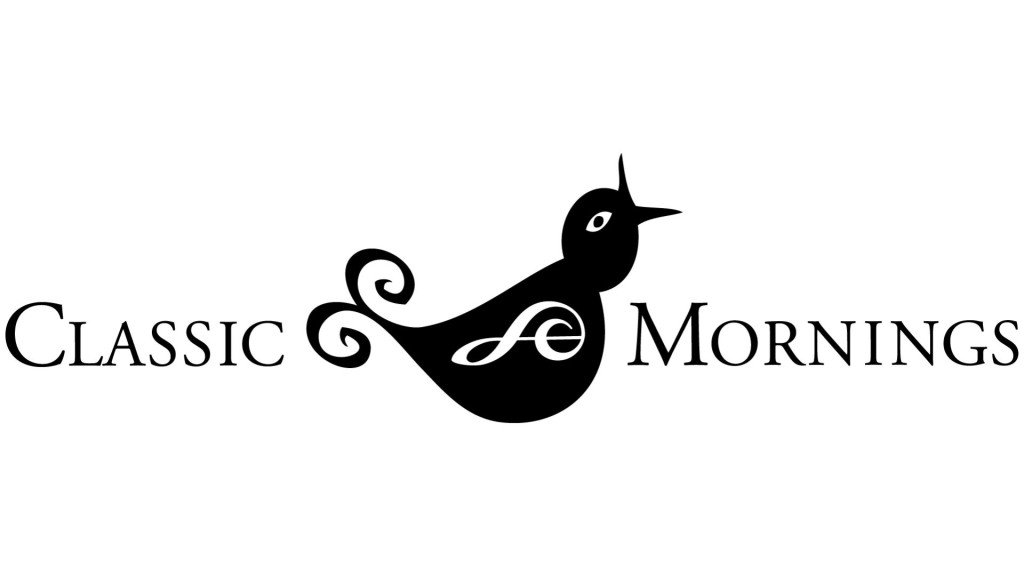See What You Might Have Heard

I hope it sounded good. Though it was largely planned, it seemed to come together in a way I couldn’t have imagined. When it was over, I was rather excited about the way Classic Mornings helped launch the Memorial Day weekend on Friday, May 24. I made a note to mention it in my blog.
The program began with the peaceful resolution of a dispute. Though it wasn’t a serious matter, even little peaceful resolutions can add up. In 2001, a recording arrived featuring a waltz by the French organist/composer Auguste Durand, played by harpist Nóra Mercz (Naxos 8.550741). Whenever I attempted to learn more about the waltz, I came upon some sources that indicated it was written for the harp, while others suggested it was written for the piano. That’s it. It was like an ongoing argument, with nobody really knowing the correct answer.
According to the recording notes, it was written for the harp. That’s incorrect. I was excited, as well as relieved, to learn that it’s one of six waltzes written for the piano by Durand, who was a music critic and publisher as well. It’s the only one that seems to be performed and recorded. It was dedicated to the 19th century French pianist/composer Théodore Ritter. I had never heard of him. And I learned that it’s a pen name for Toussaint Prévost (1840-1886). I’m not sure what finally led me to the answer. But I wouldn’t have spent all the time looking into it now and then if I hadn’t been charmed by the recording with Nóra Mercz. The International Music Score Library Project entry mentions a harp arrangement by the French harpist/composer Henriette Renié (1875-1956).
As if celebrating a victory, I then played “76 Trombones” from Meredith Willson’s The Music Man. I guessed that it might have been welcome at the outset of the holiday weekend. Yet the arrangement, seasoned with bits of John Philip Sousa marches, probably caught some listeners off-guard. It’s Leroy Anderson’s 1958 version of the famous tune from the 1957 musical.
Then came Remo Giazotto’s “Albinoni Adagio.” Many listeners are still unaware that it too was written in 1957. The composition had a war story attached to it for years. It was said to be a fragment of a concerto by Tomaso Albinoni (1671-1751), found in the rubble of the World War II Dresden bombing, and “rescued” by Giazotto. A moving story, but it wasn’t true. Giazotto (1910-1998) was Albinoni’s biographer. It’s interesting that the music has been used in war films.
I wanted to include an excerpt from Antonn Dvořák’s “American” string quartet on the program. While it was playing, I remembered that Dvořák had written it in Spillville, Iowa, I realized that we were listening to it just days after storms caused casualties and widespread destruction in Iowa. It suddenly seemed like a healing moment, listening to music born in 1894, and suggesting a more peaceful time in Iowa.
I looked ahead to May 26, which marked the centennial of the passing of the Irish-born American cellist/composer Victor Herbert. He was Dvořák’s colleague at the National Conservatory of Music of America in New York City. Though not a Memorial Day march, Herbert’s “March of the Toys,” from the operetta Babes in Toyland, is probably his best-known piece of music. And there’s an Illinois connection. The show had its premiere in Chicago in 1903, before its initial Broadway run.
May 25 marked the 90th anniversary of the death of English composer Gustav Holst (1874-1934). The 150th anniversary of his birth is also this year. Holst wrote two suites for military band, the St. Paul’s Suite, and The Planets. And Duke Ellington (1899-1974), the legendary American jazz pianist, composer, and jazz orchestra leader, died 50 years ago, on May 24,1974. His 125th birthday anniversary was April 29. It was quite a coincidence that milestone anniversaries of the passing of all three of those musicians occurred on Memorial Day weekend.
I played many more selections by a wide variety of composers. Knowing that some folks like to think of Memorial Day as the unofficial beginning of summer, I included a couple of excerpts from Franz Schubert’s “Trout” Quintet, though it’s an all season work. We enjoyed music by Handel, Haydn, Mozart, and Mendelssohn. I included a “guess whose” march (Beethoven’s Yorck).
Writing about the program doesn’t really do it justice. Missing is the music that accompanied the commemorations and the stories. But I wanted you to know that sometimes a program stays with me long after I’ve wished you a “great day.” And because the blog can’t live up to the program, you have to join us for Classic Mornings for the full effect! Tune in Monday through Friday from 9-noon on FM 90.9 or online at will.illinois.edu.

